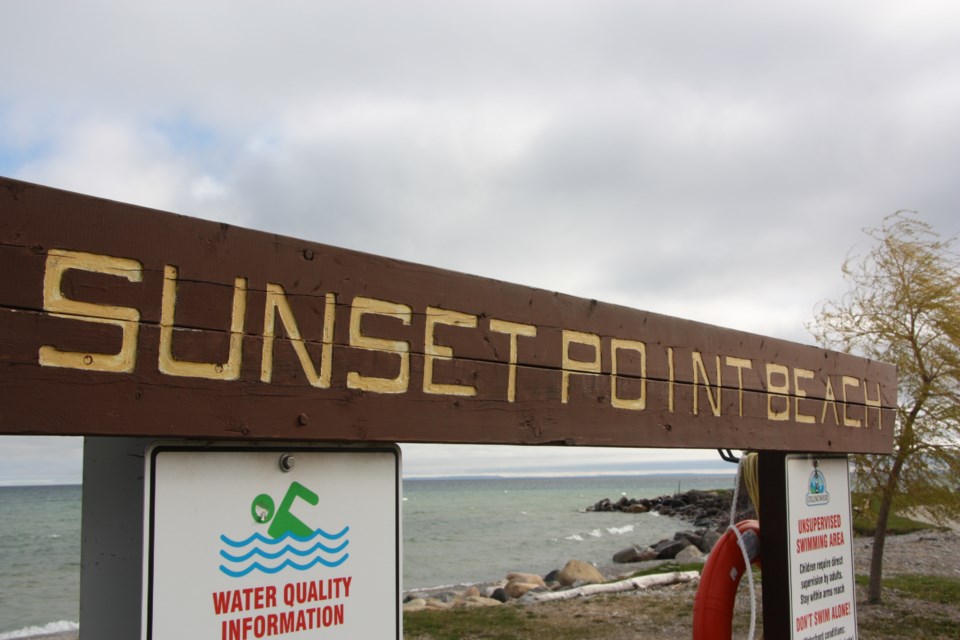The Town of Collingwood announced yesterday there are swimming advisories in place at Sunset Point Park's east and west beaches.
A notice from the town states there are increased levels of bacteria present in the water and signs are in place recommending against swimming. Those who choose to swim anyway should avoid dunking their head underwater or swallowing water.
The advisory has not yet been posted to the health unit website.
The Simcoe Muskoka District Health Unit does routine testing of public swimming areas in the region, and posts notices to the beach advisory section of the website where water quality is impacted.
There are more than 50 beaches within the health unit's testing areas where water is sampled for E. coli bacteria. If the level of bacteria exceeds provincial guidelines, it's possible there is a higher risk of illness or infection and the health unit will advise against swimming and let people know the risk.
According to a news release from the health unit, the swimming advisory will remain posted until sample testing shows bacteria testing is within acceptable limits. In cases where there is a significant risk to health and safety, the health unit will close the beach.
“Even if there is no advisory posted, beachgoers are reminded that water quality can change from day to day and even hour to hour depending on the weather and lake conditions.” said Karen Kivilahti, manager of the health unit’s Safe Water Program, in the news release. “The latest available information posted on the health unit’s website may not reflect the real-time conditions at the beach, so it is important to know what environmental factors to be aware of and how to minimize your risk.”
Rain is a significant contributing factor to increased E. coli levels as rainwater drains from the ground into the water, bringing waste such as bird and animal feces, garbage, and chemicals into the water with it.
“Avoid swimming for 24-48 hours after a heavy rainfall,” said Kivilahti. “If you do choose to swim after it rains, avoid dunking your head and never swallow the water.”
High winds that bring large waves can also increase bacteria levels by stirring up the lake bed. The health unit suggests to avoid swimming if the water is so cloudy you cannot see your feet when you are standing waist-deep in water.
Warm, shallow, slow-moving bodies of water and wet sand are other excellent breeding grounds for E. coli and other organisms.
Kivilahti reminded everyone, “to wash your hands or use hand sanitizer frequently while visiting and picnicking at the beach.”
The presence of waterfowl and their droppings can also have a significant impact on water quality, as can dead fish, algae/scum, or debris in the water that can increase the risk of illness or injury. Beach water may also be unsafe due to excessive weed growth and blue-green algae blooms.
Visit the health unit's safe water webpages for more information about the beach water testing program, to learn more about beach water quality and to view current beach advisories.
